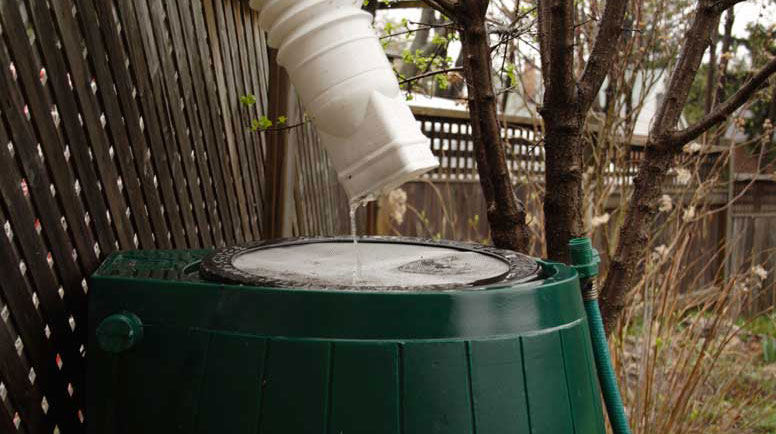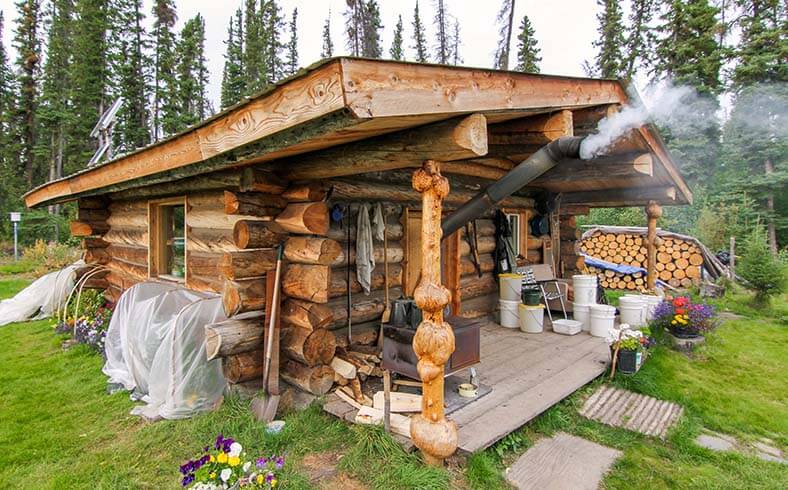After looking at the different types of living off the grid, we will now focus on the minimum you’ll need.
The Minimum of What You’ll Need
Your Own Land
This should seem obvious but at the very least, you’re going to need to own your own plot of land. It’s going to need to be a plot of land that’s off the grid on its own — of course, it’s nearly impossible to go off the grid when you live in a gated community.
You’ll want to own a few acres of land, preferably miles away from the grid system, far away from strict building codes and permitting regulations. Thankfully, land in those areas tends to be less expensive with lower taxes.
If there’s already a small cabin or home built on it, that could save you some time but you still want to make sure it lines up with all of the legal checks you’d be looking for on open acreage.
A Water System

If you are interested in drinking water, showering, brushing your teeth and cooking, you’ll need some sort of system to access and store a lot of water. The most common types of water systems are rainwater collection systems or wells — the former likely being the more common and straightforward option. Rainwater collection systems range from simple rain barrels that collect rainwater as it comes down to more elaborate systems with pumps, tanks, and purifiers. Most collect rainwater as it trickles down the gutters on your roof and collects into a dug swale that pushes the water towards a holding area. Collecting rainwater isn’t specific to off-the-grid livers. It’s relatively simple and even regular; on-the-grid homeowners can collect rainwater from their gutters in most locations to use for everything from watering plants to bathing.
A Power System
/cdn.vox-cdn.com/uploads/chorus_image/image/66766823/DuroStar_DS4000S_Portable_Generator.0.jpg)
Solar power is the way to go here. Most folks who live off the grid also have a generator to use as a backup power source but having a solar power system can store far more power and it’s great for the environment. But generators are noisy, need a lot of gas or propane to run, and don’t work great for everything you need, so this is most ideal to use as a backup in case of emergency.
A wind turbine is an excellent option for a backup for solar power if you live in a place that doesn’t have sun year-round. Consider a few 250 Watt solar panels and a solid 250 to 500 Watt wind turbine. And it’s a good idea to have a backup generator, too. You’ll also want a place to store all of that power of the sun in a solar battery.
All of these options — from wind turbines to solar batteries — can be very expensive, but it’s an investment. Spending a few thousand dollars on this kind of power can be tough upfront but you may end up saving in the long run as you won’t have to pay for anything monthly.
Food Access
You don’t have to have an entirely self-sufficient garden system to live off the grid. If you have a car and live a reasonable amount of time away from a grocery store, you can go shopping just like everyone else. But, for many people who live off the grid, living off of your own land is an integral part of the experience and lifestyle. You may want to grow your own food since it will likely be challenging to access grocery stores regularly. A traditional garden with some raised beds or a greenhouse with fruits and vegetables could be helpful. Consider also investing in some farm animals, like chickens for eggs or cows for dairy. You can also produce meat on your homestead if you have it set up for livestock. Then, your trips to town can be used exclusively for the necessities.
At What Cost?
The upfront cost of living off the grid can be very high. You have to buy land, everything you need to build an entire house, whatever power and water system you’ll need and more. But once the upfront costs are covered, the rest gets a bit simpler. There are no subscription-type charges and your rent is covered.
Let us know in the comments below how you feel about living off the grid.

